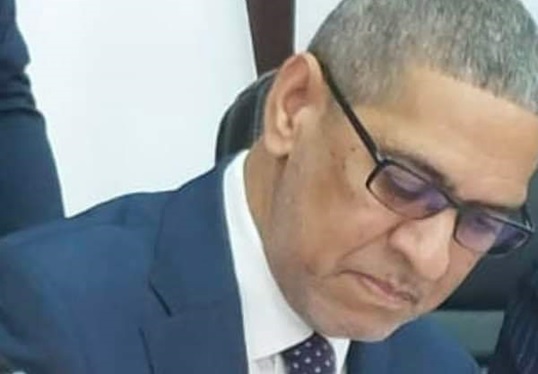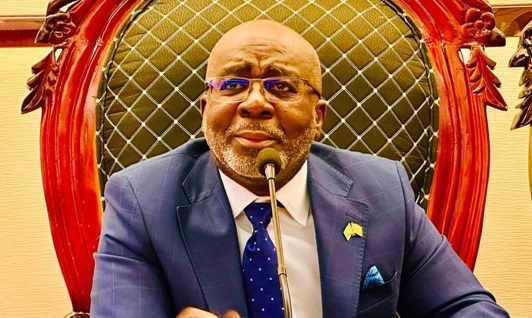MONROVIA – Monie R. Captan, CEO of the Liberia Electricity Corporation (LEC), is under increasing pressure to reveal detailed financial records detailing how the company has managed hundreds of millions of dollars in development funding over the past decade. On November 4, 2024, the Liberian People’s Party (LPP), represented by its chairman J. Yanqui Zaza, issued a formal letter to Captan demanding the release of LEC’s audited financial statements from 2015 to 2023. Citing the 2010 Freedom of Information Act, the LPP argues that the public has a right to access these records and assess LEC’s handling of substantial international and government funding.
The LPP’s request specifically focuses on financial support LEC has received from international development partners, including a $314 million loan from the International Development Association (IDA), $103 million from the African Development Bank (AfDB), and portions of a $257 million allocation from the Millennium Challenge Corporation (MCC). Additionally, the LPP is seeking transparency around government subsidies allocated to LEC across the national budget cycles from 2017/2018 to 2022/2023. LPP Chairman Zaza contends that making these records public will allow the Liberian people to understand where these substantial funds have been directed and to evaluate LEC’s performance in light of its ongoing power supply challenges.
“Liberians deserve to know how the resources allocated for electricity have been used, especially given the consistent problems with power access and infrastructure,” Zaza stated in the letter. “Transparency around these funds will enable citizens to assess the effectiveness of LEC’s financial management, particularly when compared to the optimistic progress reports released by some of these international funding entities.” He emphasized that the requested audit reports could shed light on issues ranging from infrastructure improvements to the ongoing struggle with power theft that has plagued LEC’s operations.
The issue of financial accountability within LEC is further complicated by recent calls from Senator Edwin Melvin Snowe, Jr., Chair of the Senate’s Hydrocarbon, Energy, and Environment Committee, for greater transparency in the company’s management practices. In a separate letter to Captan dated October 30, 2024, Senator Snowe raised concerns about LEC’s failure to consult the Senate oversight committee before submitting a tariff increase proposal to the Liberia Electricity Regulatory Commission (LERC). Snowe emphasized that decisions involving public utilities and energy costs directly impact Liberia’s economy and the livelihoods of its citizens, many of whom are already facing severe economic hardships.
“This lack of transparency not only sidelines the Senate’s oversight role but also risks undermining public trust,” Snowe wrote. He added that financial accountability and openness are essential, particularly in managing a public utility that serves as a vital component of Liberia’s infrastructure. “LEC’s failure to communicate with the Senate committee undermines our mandate to ensure energy sector policies align with the best interests of the Liberian people.”
The Liberia Electricity Regulatory Commission (LERC) has also engaged in the matter, formally requesting that LEC submit all supporting documents and financial data related to its recent proposals. LERC is legally mandated to oversee electricity pricing and ensure that any adjustments are justified by actual service costs rather than arbitrary increases. To ensure a transparent and fair review process, LERC has announced plans to conduct public hearings and stakeholder consultations. These sessions will allow citizens, lawmakers, civil society organizations, and other stakeholders to share their views on LEC’s management practices and financial decisions. The commission’s outreach aligns with its commitment to protect consumers and guarantee that licensed utility operators provide equitable and quality services.
The call for financial transparency from both the LPP and Senator Snowe has drawn significant public interest as Liberians seek accountability within the nation’s electricity sector. Many are questioning why electricity supply remains inconsistent and costly, despite substantial international support and government subsidies aimed at improving the power sector. By requesting a full breakdown of LEC’s financial records, these calls for transparency highlight an urgent need to address possible inefficiencies, mismanagement, or even misallocation of funds within LEC’s operations.
It is worth noting that in 2021, LERC approved specific tariffs for five different customer categories, including Social Customers, Prepaid Residential Customers, Postpaid Residential Customers, Prepaid Non-Residential Customers, and Postpaid Commercial Customers, as well as Medium Voltage Customers. These rates, which took effect on January 1, 2022, are set to expire at the end of 2024, with new tariffs potentially beginning on January 1, 2025, pending LERC’s review and approval. Currently, LEC services extend to Montserrado, Grand Cape Mount, Bomi, and Margibi counties, areas that have long experienced power challenges and delays in the promised improvements.
For many Liberians, the recent calls for transparency represent a critical test of accountability for Captan’s leadership at LEC. The forthcoming public hearings and consultations may provide an opportunity for citizens to voice their concerns directly and demand answers from the LEC on its financial stewardship. As Captan faces mounting pressure, both the public and lawmakers hope that this push for transparency will lead to more responsible management of Liberia’s electricity resources, which are essential for the country’s development and economic stability.
If LEC discloses these financial statements as requested, it could set a precedent for how public utilities in Liberia approach transparency and accountability. The outcome of these demands will likely shape public perception of LEC’s commitment to addressing the energy needs of Liberia’s citizens and ensuring that substantial funds allocated for infrastructure and development are utilized effectively. The pressure on Captan to release the financial records highlights the broader national effort to promote transparency in Liberia’s public sectors, especially as the government continues to address critical issues like energy, infrastructure, and economic resilience.







